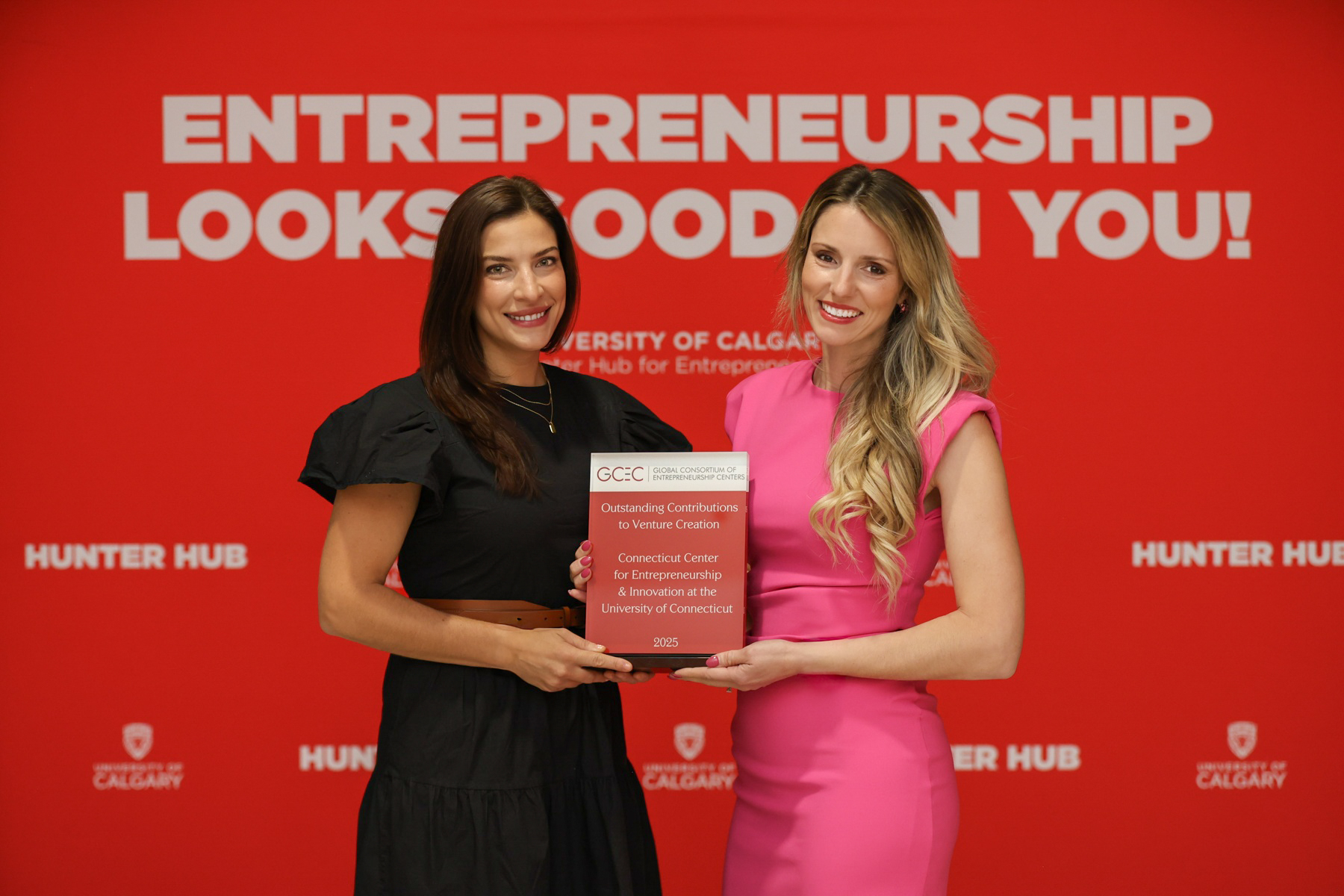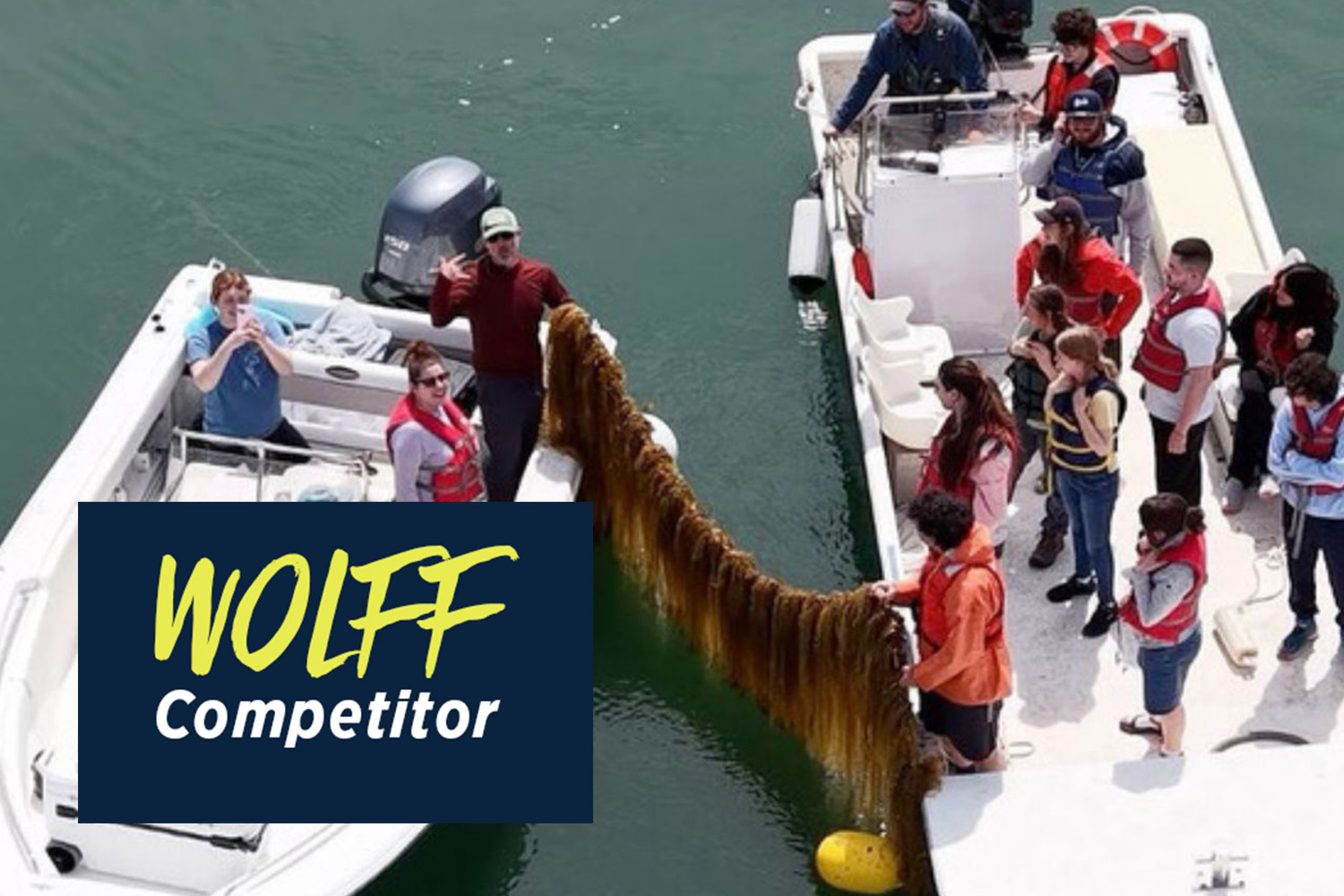
An ambitious project to train 27 new graduate students in seven different Ph.D. programs in the College of Liberal Arts and Sciences has won a coveted $3 million, five-year “IGERT” grant from the National Science Foundation.
The UConn project will cross as many disciplines as its subject: understanding human language. It will recruit graduate students who will extend their studies into multiple fields that include psychology, cognitive science, linguistics, communications disorders, neurobiology, molecular and behavioral genetics, and computational modeling.
Its primary impact will be to prepare a new generation of scientists to further the already rapid progress in understanding human language, by breaking down barriers that separate academic fields.
IGERT grants – the Integrative Graduate Education and Research Traineeship program of the NSF – are intended to create cultural change in graduate education through collaborative research and the recruitment of a diverse group of students. The grant program was created by the NSF in 1995 in response to a National Academy of Science report calling for more flexible, diverse graduate education. To date, the NSF has awarded 218 grants.
The IGERT award recognizes the growing stature of our interdisciplinary program in the study of language in the College of Liberal Arts and Sciences.
“Research in cognitive and biological approaches to language has reached a point where connecting the dots is within reach, but doing so will require interdisciplinary teams,” says James S. Magnuson, associate professor of psychology and the principal investigator (PI). To date, he says, there has been “frustratingly little significant cross-talk” between cognitive and biological fields among researchers who are studying human language.
While language is “the defining element of human experience,” in the words of the grant proposal, learning how humans develop, process, and use language is so complex that it requires an understanding of many fields and how they are related. Environment and genetics can affect neurobiological traits. These in turn can influence cognition and behavior.
Building on success
“The IGERT award recognizes the growing stature of our interdisciplinary program in the study of language in the College of Liberal Arts and Sciences,” says Dean Jeremy Teitelbaum. “We plan to continue to build this program into one of the best in the country. Indeed, six of the 50 new faculty positions assigned to CLAS by UConn’s aggressive faculty hiring plan make up a cluster hire in language that will further build our research power in this fascinating field.”
The co-PIs on the project are R. Holly Fitch, associate professor of psychology; William Snyder, associate professor of linguistics; Carl Coelho, professor and head of communication sciences; and Ken Pugh, professor of psychology and president and director of the Haskins Laboratories in New Haven, an institution that has strong research affiliations with UConn. In all, 19 faculty members at UConn, one at Yale University/Haskins, and five at institutions abroad will participate in the project, which is called “Language Plasticity – Genes, Brain, Cognition, and Computation.”
The faculty who will advise the graduate students have research specialties such as language acquisition and processing, traumatic brain injury, autism, molecular and behavioral genetics, neuroscience, and computational modeling. They study how language develops in deaf children and what happens with developmental disorders as well as with typical language acquisition. They look at the genetic bases of language and how the brain recovers from injury.
Many of them already work across disciplines as part of a cognitive science program in CLAS. They teach classes for undergraduates, conduct research, and last year gained approval for a certificate in graduate education.
In 2010, some of the same faculty were participants in a successful $1.3 million grant proposal to the National Institutes of Health (the National Institute on Deafness and Other Communication Disorders) that enabled UConn to hire two cross-disciplinary faculty – Marie Coppola in psychology and linguistics and Emily Myers in communication sciences and psychology – who are now part of the IGERT team.
“We said that by hiring them, these joint appointments would help with interdisciplinary collaborations,” says Diane Lillo-Martin, Board of Trustees Distinguished Professor of Linguistics and head of the cognitive science program.
Grad student support
The IGERT graduate students, the first of whom will start in fall 2012, will earn Ph.D.s in a home department but will take coursework in others, including intensive “J-Term Primer” courses that will be offered over January breaks. They will receive $30,000 a year for two years from the NSF. After that, more graduate assistance will be provided through additional funding of $120,000 per year for the project from the vice provost for graduate education and the CLAS dean. Students’ tuition and fees also will be waived.
Cohorts of five to seven graduate students will join the program each year for five years.
Magnuson currently is on sabbatical leave in France but will return in the fall. He is also the recipient of an NSF CAREER grant for young investigators.
“Since I was an undergraduate linguistics major 20 years ago, there have been constant efforts to study language from an interdisciplinary approach. But these have mostly been within cognitive disciplines,” he says. “What is really exciting is the potential to span the theoretical and empirical gap between cognitive and biological domains.”
Co-PI Holly Fitch, who attended a conference at NSF last week for prospective IGERT awardees, learned at the conference that UConn had won one of 18 IGERT grants awarded this year.
Often, institutions apply several times for an IGERT before winning one. This was the language group’s second try. After the first, CLAS created an internal mock review panel of faculty to work with the grant seekers, critiquing the proposal.
Carol Atkinson-Palombo, assistant professor of geography, was a member of the mock review panel. As a graduate student at Arizona State University, she was an IGERT fellow in urban ecology.
“I am especially pleased that the program [IGERT] allowed me to study a wide range of human-environment interactions from a variety of perspectives, and that this breadth enables me to work with faculty and graduate students from many disciplines across UConn,” she says.
Magnuson predicts the IGERT grant will be transformative. “All of the courses that form our program will be designed with the larger vision of the language learner as an active part of a complex system – genes, brain, cognition, behavior, environment – and with connections to the other courses. This will require tremendous effort among the faculty, as we must also immerse ourselves in each of the disciplines in order to design our courses,” he says.
Some of the UConn researchers participating in the IGERT project are also on the faculty at the world-renowned Haskin Laboratories, an independent, interdisciplinary research center affiliated with UConn and Yale University that has been responsible for a number of major scientific advances in the science of the spoken and written word. For more detail on UConn and Haskins, go to the article ‘How Do We Learn to Speak and Read?‘



